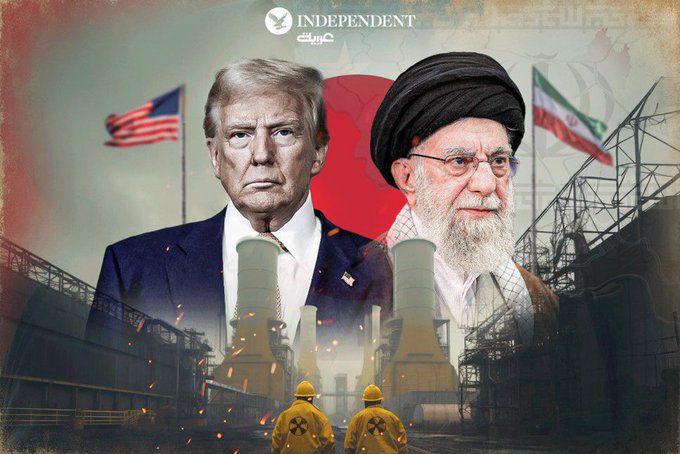Optimists cite what they see as key differences between the failed January ceasefire and today. While accurate, neither necessarily foreshadows rapid progress.
With the last Israeli hostages living and dead to be released from Hamas captivity imminently, there is every reason for them and their families to celebrate and for everyone to hope for a more peaceful future.
But in the modern Middle East, we have been in a similar position many times before. As recently as this year’s January-through-March cease fire, Israel and Hamas exchanged hostages but the path to a long-term solution collapsed.
Woe to those who echo Neville Chamberlain’s 1939 boast that he had achieved “peace for our time”. US President Donald Trump has already gone much further, promising “eternal peace” in the region. He will doubtless say more when he arrives in Israel even though he did not receive the Nobel Peace Prize last week.
Tellingly, however, Trump thanked Russian President Vladimir Putin for saying the Nobel Prize committee has rewarded people who have “done nothing for the world” while Trump “solves complex problems, crises that last for decades”.
Optimists cite what they see as key differences between the failed January ceasefire and today: notably that all Israel hostages will be returned and that Trump has applied pressure on Israeli Prime Minister Benjamin Netanyahu. While accurate, neither necessarily foreshadows rapid progress.
Firstly, the hostage returns will eliminate a major factor in Israel’s anti-Netanyahu politics since Hamas’ 2023 attack.
There will still be opposition to his policies in Gaza and the wider regional war caused by Iran’s ring of fire strategy, but the most emotional concern for average Israelis is closed. After Israel announced the deal, early polls showed improvement in Netanyahu’s political standing. He may also hope to benefit from Trump’s visit and the actual return of the hostages.
Secondly, Trump’s pressure on Netanyahu, widely attributed to Israel’s unsuccessful attack on Hamas leadership in Qatar, reflected Trump’s personal ire more than a change in US strategic views. He believed he hadn’t received adequate notice of Israel’s strike which, combined with predictable outrage from Qatar and others, is hardly likely to recur. While controversy over the incident was significant, its effects could well be short term.
Media coverage has concentrated on the returning Israelis held by Hamas, but Jerusalem will release approximately 2000 Palestinian prisoners, some 250 of whom are serving life sentences for terrorist activity and include some of the worst offenders in Israeli prisons. Hamas is pressing for releasing additional Gazans.
The return of these Gazans will serve as a tangible signal to others that Hamas is reconstituting its terrorist and military capabilities despite being severely damaged after two years of fighting. Indeed, Hamas fighters reportedly moved quickly in Gaza City to reassert control after the agreed-upon pullback of the Israel Defence Forces.
Whether we are at “the end of the beginning” is unknowable. International leaders must be more resolute today than they have ever been.
And that is the easy part. Further down the road, Trump’s peace plan is filled with vague, aspirational statements including the first of its twenty points: “Gaza will be a deradicalised terror-free zone that does not pose a threat to its neighbours.”
There are more. “Gaza will be governed under the temporary transitional governance of a technocratic, apolitical Palestinian committee” handling day-to-day Gazan affairs “with oversight and supervision by a new international transitional body, the ‘Board of Peace’” chaired by Trump himself. Hamas and other terrorist groups have already stated they reject any “foreign guardianship” over Gaza.
As abstract as disputes over these points might be, they have palpable effects on what happens after the hostage/prisoner swaps are successfully concluded. The most critical question is whether Hamas will demilitarise.
That point is largely aspirational and expresses the objective that Hamas will have no role in Gaza’s governance but does not say how that will be achieved. Obviously, further negotiation with Hamas is required – about, ironically, the central role it will have in its own unlikely military demise.
One little-noticed point in the peace plan addresses the eventual transfer of Gaza’s governance to the Palestinian Authority “at such time as the Palestinian Authority has completed its reform programme … and can securely and effectively take back control of Gaza” as described in earlier proposals.
But making the Authority “modern and efficient” is as likely as King Canute turning back the tide – or Hamas’s willingness to hand back Gaza to its principal Palestinian opponent.
Even if implementing Trump’s plan came close to such a turnover, there is no provision to ask Gazans themselves by whom they want to be ruled – through a referendum or an election, for example. And the risk of renewed authoritarian rule in Gaza, especially if Palestinian statehood is reached, remains unacceptably high.
Whether we are at “the end of the beginning”, in Winston Churchill’s words, is unknowable. International leaders must be more resolute and clear-eyed today than they have ever been.
This article was originally published by Australian Financial Review, on October 12, 2025. Click here to read the original article.
